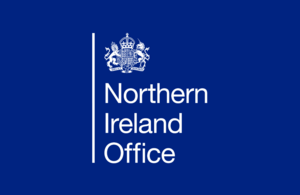Lord Frost calls on EU to show pragmatism on the Protocol after meetings with a number of business and community representatives in Northern Ireland
Lord Frost calls on EU to show pragmatism on the Protocol after meetings with a number of business and community representatives in Northern Ireland

-
Lord Frost and Secretary of State for Northern Ireland (SoSNI), Brandon Lewis, met with a number of business and community representatives on two-day visit.
-
They heard about some of the current difficulties in the operation of the Protocol and the consequent disruption to businesses and consumers.
-
Both Lord Frost and SoSNI made clear the EU needed to take a pragmatic and proportionate approach to the Protocol if key elements of it were to be sustainable.
In his first official visit to Northern Ireland, Lord Frost has met with a number of business and community representatives to listen to their experiences and to reaffirm the Government’s commitment to address issues with the Northern Ireland Protocol. The visit forms part of the UK Government’s ongoing engagement with stakeholders in Northern Ireland, including through the Northern Ireland Business Engagement Forum and Brexit Business Taskforce.
Lord Frost was able to talk to a range of businesses from several sectors, notably aerospace, manufacturing, food and drink, retail, and life sciences, to hear how they are adapting to the new arrangements and to understand the challenges they are facing.
Lord Frost and SoSNI also visited Larne Port, a Point of Entry for goods moving from Great Britain to Northern Ireland, to see how checks and controls under the Protocol are currently being operated. They met Border Force and DAERA officials, and EU Commission staff present under the Protocol arrangements.
Throughout the visit, Lord Frost and SoSNI heard about the challenges in the operation of the Protocol and the consequent disruption for businesses and communities. In particular they heard concerns about the level and complexity of paperwork required even on goods remaining in Northern Ireland, notably in the agrifood sector; about disruption to supply chains from Great Britain and consequent diversion of trade; and about the risks associated with the expiry of the grace periods and the introduction of further processes as a result.
Lord Frost and SoSNI also pledged to continue working closely with all sectors of opinion in Northern Ireland, including the NI Executive, as talks with the EU Commission continue.
Lord Frost, Minister of State at the Cabinet Office, said:
“It’s clear from my visit that the Protocol is presenting significant challenges for many in Northern Ireland. Businesses have gone to extraordinary efforts to make the current requirements work, but it is hard to see that the way the Protocol is currently operating can be sustainable for long.
“We’re committed to working through the issues with the EU urgently and in good faith. I hope they will take a common sense, risk-based approach that enables us to agree a pragmatic way forward that substantially eases the burdens on Northern Ireland.
“Solutions must be found rapidly in order to protect the Belfast (Good Friday) Agreement in all its dimensions and to minimise disruption to the everyday lives of people in Northern Ireland - as the Protocol itself requires. As the Prime Minister has made clear, we will continue to consider all our options in meeting our overriding responsibility for sustaining the peace and prosperity of everyone in Northern Ireland.”
Secretary of State for Northern Ireland, Brandon Lewis said:
“Over the past two days, I have had productive meetings with Lord Frost and representatives from across Northern Ireland, building on my extensive engagement since the start of this year.
“It is vital that the experiences, opportunities and challenges faced by people and Northern Ireland are understood and at the heart of our approach. I will continue these constructive and practical discussions in the weeks ahead, supporting Northern Ireland’s business needs and minimising the risk of disruptions at a crucial time.”